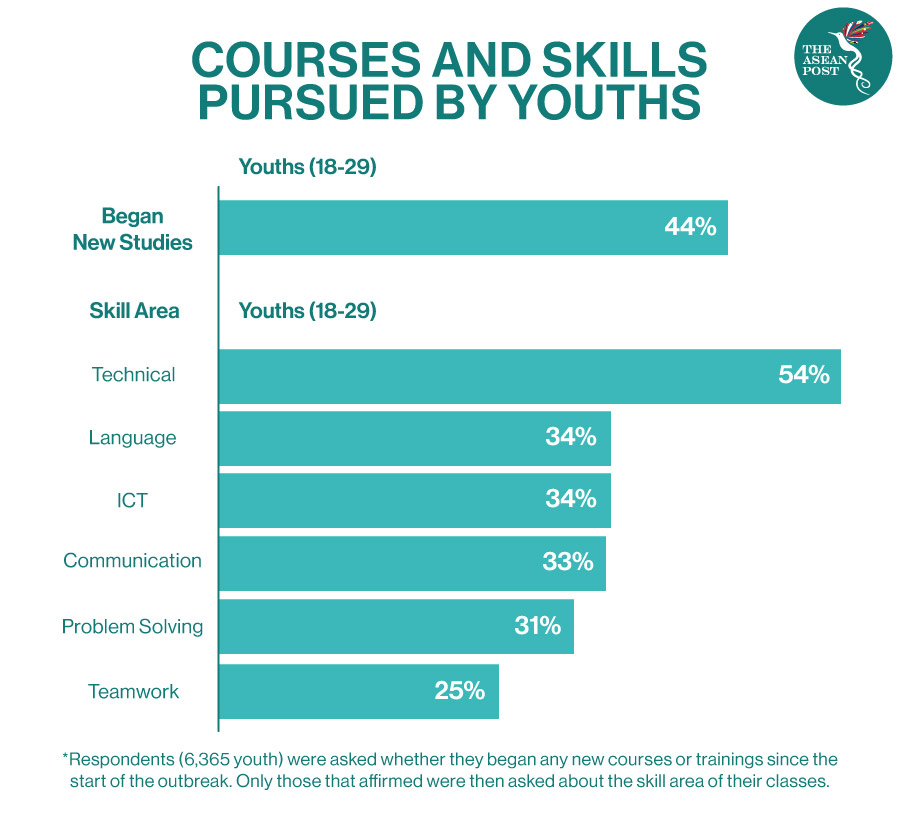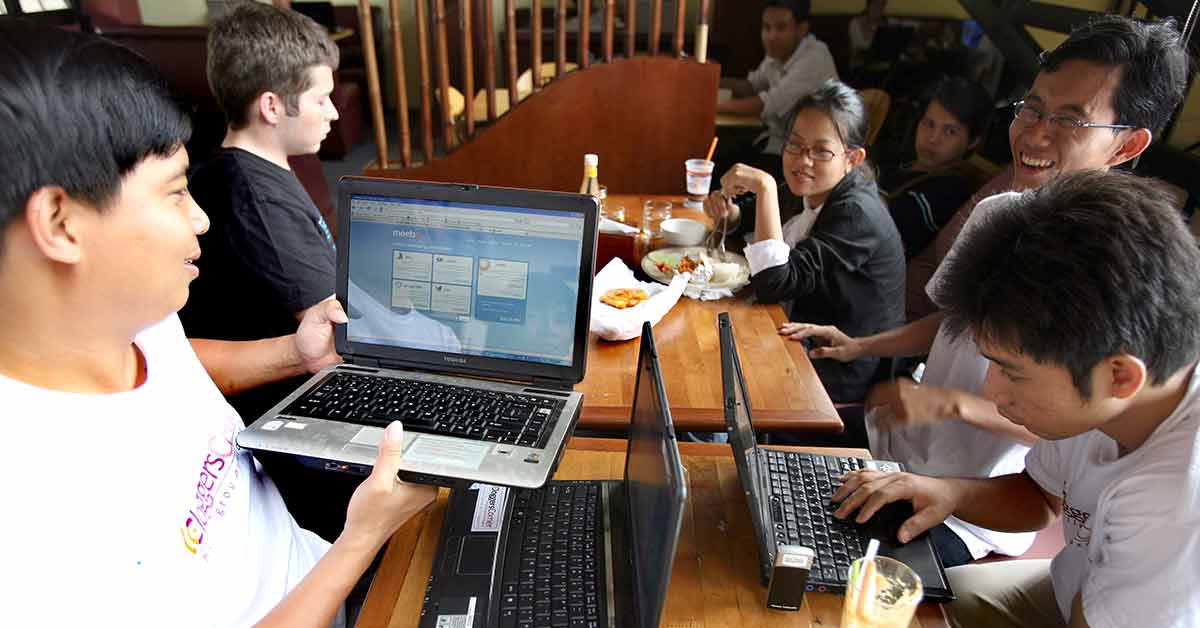Yesterday, The ASEAN Post published an article about the disproportionate impacts that the pandemic has inflicted on the employment prospects of young people. The coronavirus crisis has indeed severely disrupted livelihoods, businesses and the economy in general. Every sector, organisation and institution has felt the pinch from the pandemic.
For the youth, education and training are crucial in enhancing their employability. Unfortunately, the current crisis has also affected the education and learning progress of youths.
“The global pandemic has impacted not only employment opportunities but has also disrupted the delivery of education, training and skills development programs, and has also made labour market entry and transition between jobs quite challenging,” stated the United Nations (UN).
A 2020 report by the International Labour Organization (ILO) titled, "Youth and COVID-19: impacts on jobs, education, rights and mental well-being" revealed that young people faced a “gloomy outlook” on their education amid the pandemic.
The report is based on the Global Survey on Youth and COVID-19, a study of more than 12,000 young people aged 18 to 29, conducted online in 23 languages across 112 countries between 21 April and 21 May. Respondents were mainly educated young adults with internet access, representing students and working young people with a tertiary education.
Based on the study, three in five young people surveyed were engaged in education and training, with 15 percent combining education and work. The COVID-19 crisis may pose a heavy toll for these youths through disruption to learning, diminished education and learning outcomes and lost earnings. They risk being pushed-off from formal or informal learning systems and may perhaps experience a longer and more difficult transition into employment.
The study also revealed that the closure of schools, universities and training centres affected over 73 percent of the youth surveyed. Whereas 13 percent of young people saw their education and training come to a complete stop since the pandemic began.
In addition, the transition to online and distance learning appears more widespread among youth in high-income countries, highlighting the large “digital divide” between regions, noted the ILO. The study found that 65 percent of youth in high-income countries were taught via video-lecture, compared to 55 percent in middle-income and 18 percent in low-income countries.
Reskilling, Upskilling
Nevertheless, despite these challenges, the youth haven’t given up. In a bid to better their job prospects in the future, about half the respondents have sought out new learning opportunities. According to the ILO report, 44 percent of the young people surveyed had pursued new training courses since the start of the pandemic.

Arinya Talerngsri, Managing Director of SEAC – Southeast Asia’s Lifelong Learning Center – in Bangkok, Thailand said that as the pandemic has accelerated the adoption of a digital culture worldwide, reskilling and upskilling “in the realm of digital transformation” is urgently required.
In an article titled, ‘Reskilling and upskilling to overcome a crisis,’ she wrote: “This is a now-or-never situation and we cannot wait until tomorrow to reskill and upskill. We are in the midst of a crisis and the longer we put aside developing ourselves, the tougher it will be for us to deal with the current and future issues the world throws at us.”
Last March, the government of Indonesia in partnership with e-commerce platforms, state-owned Bank Negara Indonesia (BNI), e-wallet OVO and LinkAja, and edutech platforms launched the pre-employment card programme to support a workforce hit by the adverse economic impacts of the pandemic.
“The card will be an alternative for those affected by the COVID-19 (outbreak) to learn new skills, upskill and reskill,” said Airlangga Hartarto, Indonesia’s Coordinating Economic Minister. “The program will allow them to enhance their competence and boost their competitiveness,” he added.
The organisations involved in the pre-employment card programme would select qualified institutions that provide the training needed by the industry and is available to Indonesians who are at least 18 years old. It was also reported back in March that the government has allocated at least IDR10 trillion (US$680 million) for the programme, which is said to provide training to about two million people.
Neighbouring Malaysia, likewise, reported that RM2 billion (US$479 million) had been allocated under the Economic Recovery Plan to ensure the success of the Skills and Upskilling Programme.
Malaysian media reported last June that youths who are jobless or retrenched will be retrained under the programme for free.
“During this period, when jobs have yet to materialise due to the slow economy, it is wise that we upskill our youths. The programme will benefit up to 200,000 youths, who will receive training allowance, as well as meals,” said Prime Minister Muhyiddin Yassin.
Philippine Business for Education (PBEd), a non-profit organisation has urged local industries to help raise the skill levels of Philippine youths amid the pandemic to ensure they are workplace ready.
“The youth have plans to continue their education and look out for opportunities to upskill on other technical and life skills but technically there are no intentional efforts to cater to them,” explained Armand Aquino, PBEd Monitoring, Evaluation, and Learning Specialist in an online briefing.
The UN also released a statement encouraging stakeholders to promote skilling programmes for young people. The organisation stated that it has a domino-effect which help in making significant strides towards the Sustainable Development Goals (SDGs).
“For example, not only does it contribute in attaining SDG 8 (decent work and economic growth) by providing more opportunities to work, it also helps in achieving SDG 1 (no poverty), SDG 2 (zero hunger), SDG 3 (good health and well-being), SDG 4 (quality education), and SDG 16 (partnership for the goals),” explained the UN.
Related Articles:
